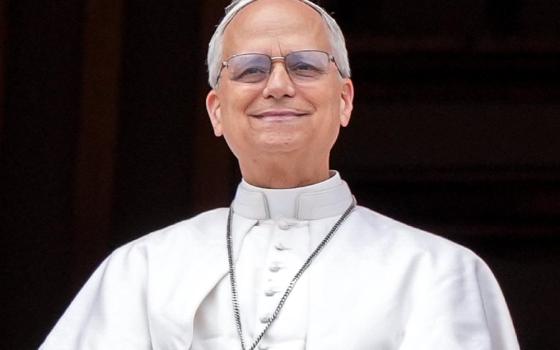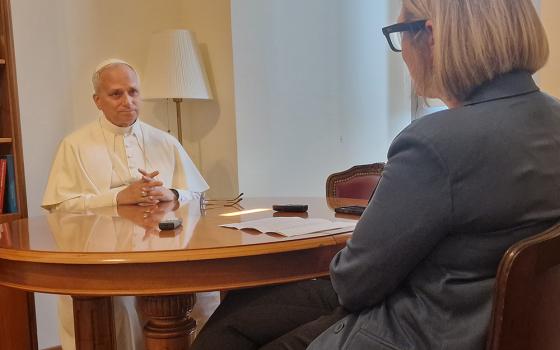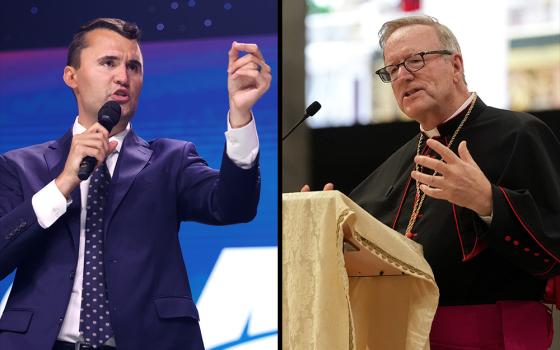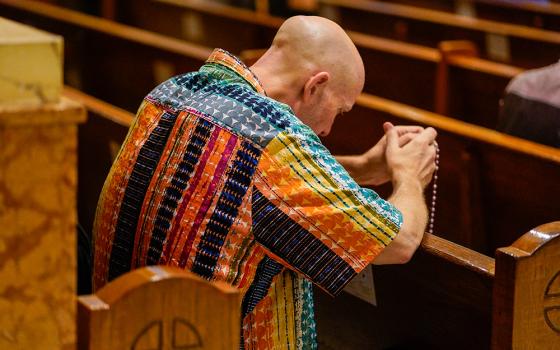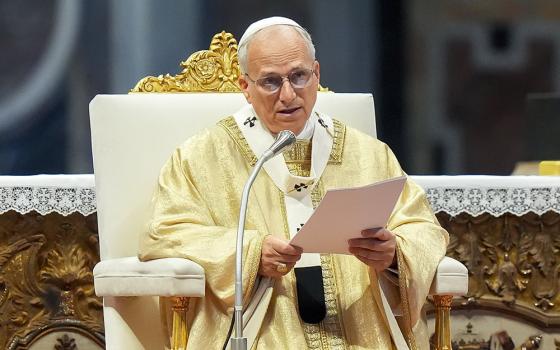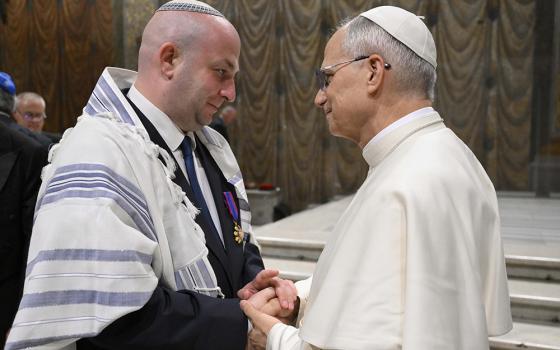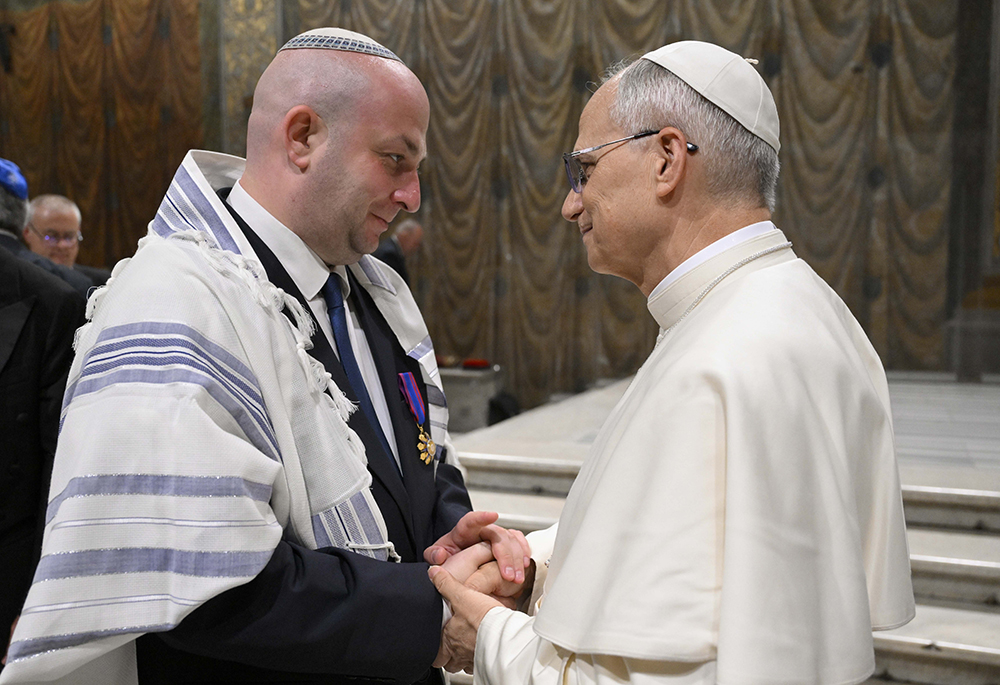
Pope Leo XIV greets Silviu Vexler, president of the Federation of Jewish Communities in Romania, during a ceremony honoring Blessed Iuliu Hossu in the Sistine Chapel at the Vatican June 2, 2025. (CNS photo/Vatican Media)
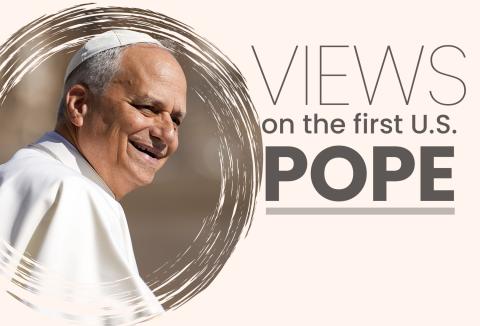
On June 13, 1960, Jewish historian Jules Isaac had a momentous audience with Pope John XXIII. That day, he related findings that he would go on to publish in The Teaching of Contempt: Christian Roots of Antisemitism, which focused upon three core Christian antisemitic notions: Jews killed Jesus, Judaism was "degenerate" in the time of Jesus, and Jews were exiled from their ancestral homeland as punishment for Jesus' crucifixion.
Isaac then explained how, together, these three notions contributed to nearly two millennia of anti-Jewish persecutions. The teaching of contempt for Judaism and the Jewish people provided the necessary, albeit insufficient, condition that culminated in the Holocaust.
The church responded to Isaac and other Jewish leaders with whom it met through an extensive process of dialogue. Ultimately, the church issued the Nostra Aetate declaration on Oct. 28, 1965, which transformed Jewish-Catholic relations. It denounced antisemitism, clarified that the Jewish people are not responsible for Jesus' death and renounced the idea that Christianity had superseded and replaced Judaism.
Successive popes and Catholic leaders have built upon this ever since, affirming the depth of relationship between Judaism and Catholicism. Among their noteworthy statements are the following:
- "Guidelines and Suggestions for Implementing the Conciliar Declaration Nostra Aetate" (1974) calls Christians to understand the Jewish people as they understand themselves.
- Pope John Paul II's prayer at the Western Wall (2000) affirms that the Jewish people continue to have a sacred religious purpose and that Christians still need forgiveness for the suffering that they have brought to the Jewish people.
- "The Jewish People and Their Sacred Scriptures in the Christian Bible" (2001) affirms the spiritual efficacy and intellectual soundness of the Jewish study of Torah, creating new opportunities for religious dialogue and understanding.
- Pope Benedict XVI's visit to Birkenau-Auschwitz (2006) declares that the genocide of the Jewish people was an attempt by the German Nazis to murder not just the Jewish people, but God, who dwells in the midst of Israel.
- The section Relations with Judaism (in Evangelii Gaudium by Pope Francis) (2013) acknowledges with special emphasis that it does not include Jews among those vast numbers of people in the world today whom the church calls to turn away from idols and to serve the true God.
- "The Gifts and the Calling of God of God are Irrevocable (Romans 11:29): A Reflection on Theological Questions Pertaining to Catholic-Jewish Relations on the Occasion of the 50th Anniversary of Nostra Aetate" (2015) affirms that the church will no longer actively seek the conversion of the Jews, among the vast number of people today whom it evangelizes.
Beyond these pivotal declarations, many quieter meetings, interchanges and efforts have advanced collaborations between our communities and friendships between their leaders.
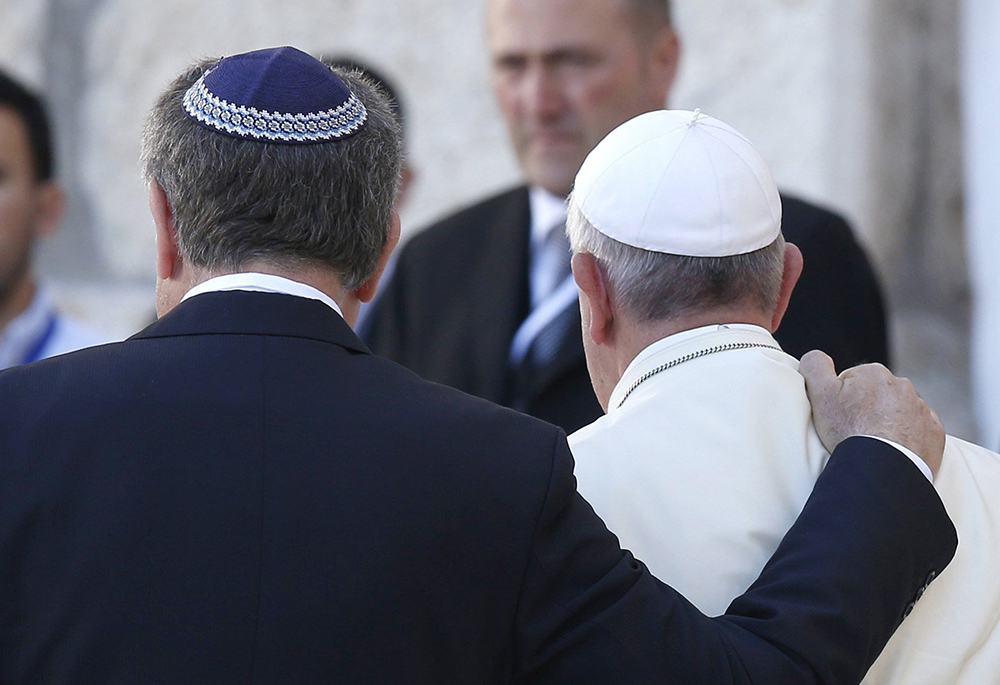
Rabbi Abraham Skorka of Buenos Aires, Argentina, and Pope Francis embrace after visiting the Western Wall in Jerusalem May 26, 2014. (CNS/Paul Haring)
We now await Pope Leo XIV's approach to further developing these important acts of friendship from the church to the Jewish people. Pope Leo XIV assumes leadership of the Roman Catholic Church and the Vatican 60 years after the promulgation of Nostra Aetate. He has a remarkable foundation upon which to build.
As the first Augustinian Pope, Leo XIV has an opportunity to reconsider Augustine of Hippo's assertion that the Jews are a "witness people," meaning a people destined to flounder in exile as a demonstration of what happens to those who do not accept Jesus. In this view the continuity of the Jewish people serves only a Christian purpose.
Augustine supported this by citing Psalm 59:11, quoting Scripture as follows: "Slay them not, lest sometime they forget Thy law," "Scatter them abroad in Thy virtue," and "And bring them down, my protector, O Lord." In Augustine's view, this demonstrates what happened and would continue to happen to the Jewish people for rejecting Jesus. He continued, "Now this thing hath been done: throughout all nations there have been scattered abroad the Jews, witnesses of their own iniquity and our truth."
Advertisement
Pope Leo XIV could explain that exile and suffering was not a punishment that God wrought upon the Jews for failing to accept Jesus' messiahship. As such, their return to the land of Israel and the establishment of the modern state of Israel is not contrary to Catholic teaching.
Such a statement in no way compromises the church's dedication to its Palestinian and Arab faithful, nor its prayers and advocacy for peace. It would merely complete the reversal of the adversos Judaeos tradition.
Catholic scholar Gary Anderson writes in his landmark article, "How to Think About Zionism" that "The return of the Jews to Israel has also posed a challenge to Christians. For ever since the days of Augustine, Israel's landlessness was commonly thought to be a punishment for the death of Christ." He continues that "The question now is whether we can move from an attitude of toleration and acceptance to bold theological affirmation."
While the work of affirmation of Catholic-Jewish friendship remains ongoing, moving beyond Augustine's condemnation of Jews to suffer in exile could deepen the theological work that Pope Leo XIV's forbearers set in motion more than 60 years ago.
